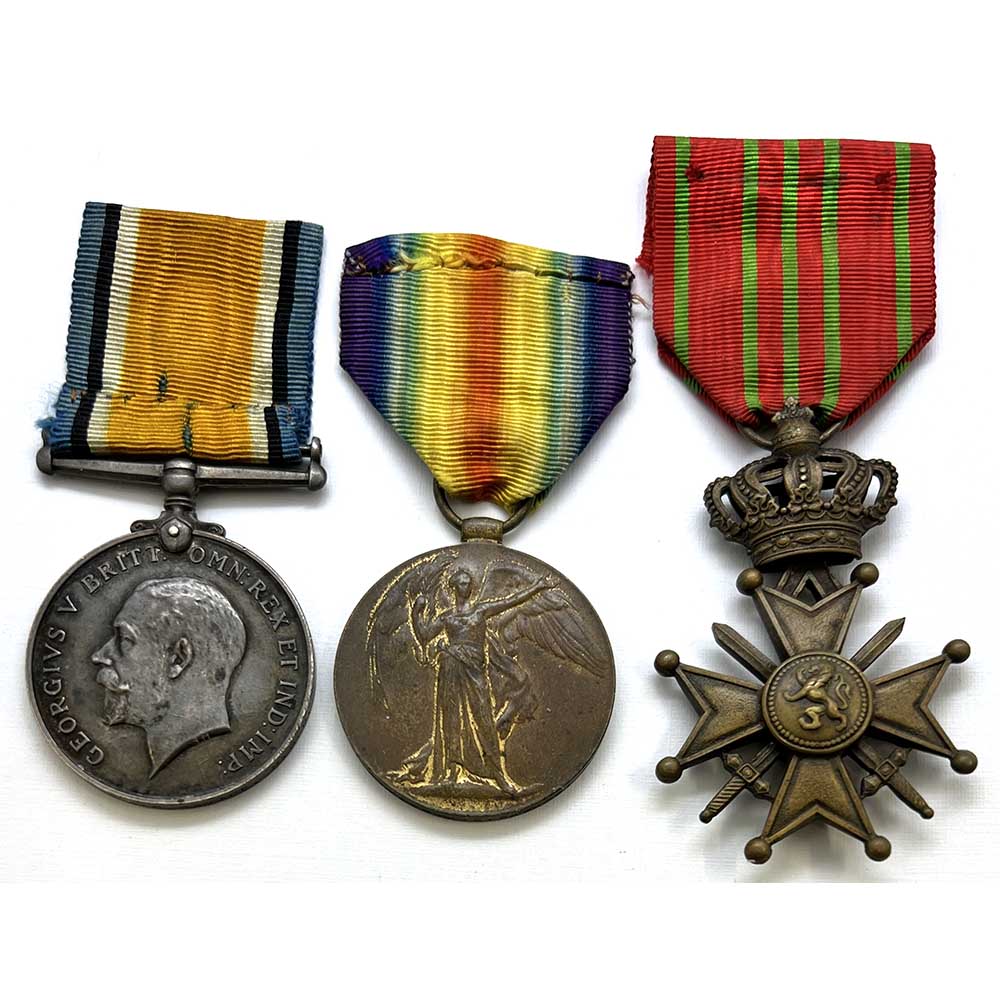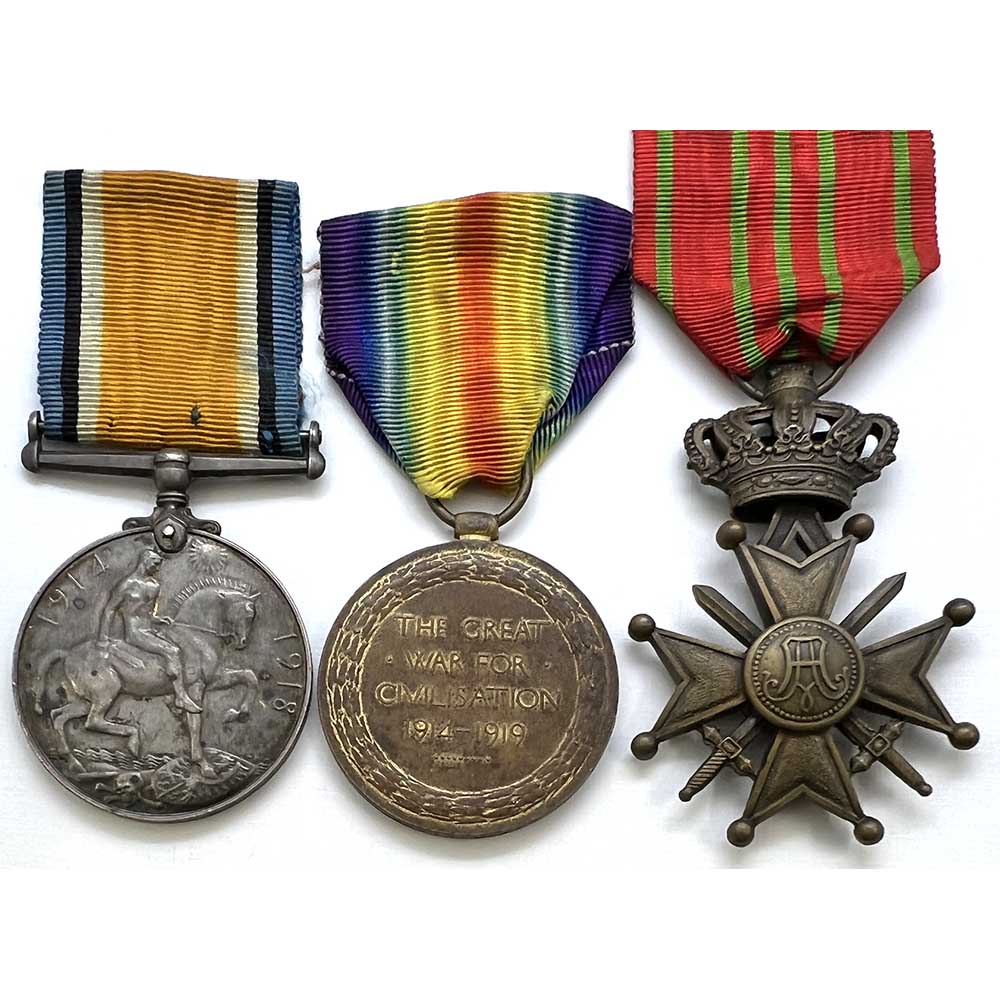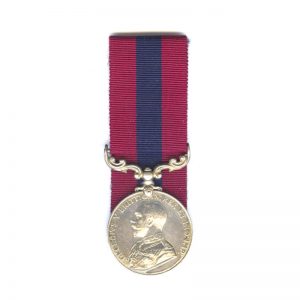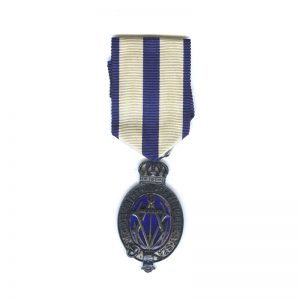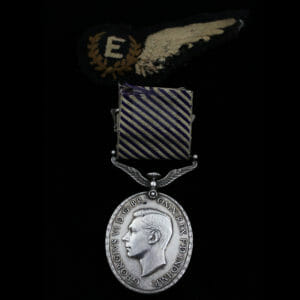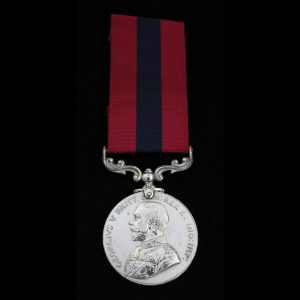Description
British War and Victory Medal, Belgium Croix de Guerre, 5584 Company Sergeant Major Albert George Savage, South Wales Borderer’s attached Machine Gun Corps.
A gallant early transfer to the Machine Gun Corps confirmed Foreign Award group to Warrant Officer Albert George Savage.
After the war he started a Cardiff Club which had 92 members by 1930, however he seems to have followed drinking laws very loosely and would fall foul of the Cardiff Police who conducted a night raid in 1930 during a crackdown on illegal clubs and gaming houses.
Award announced in the London Gazette, 12th July 1918.
Both officially impressed: “5584 W.O. CL 2. A. G. Savage. M.G.C.” slight attempted erasure to rank not affecting initials and surname to both.
Only entitled to the WW1 Pair for service in WW1.
Western Mail 16th September 1919:
“Albert George Savage, late Sergeant-Major S.W.B., attached M.G.C., who resides at 7 Wauntreoda-Road, Whitchurch, Cardiff, is among the recipients of the Belgian Croix de Guerre.”
Previously served as 14207 South Wales Borderers before being attached to the newly formed Machine Gun Corps adopting number 5584 as Warrant Officer 2nd Class.
Albert George Savage was born during 1897, according to his pension card.
After the war he was discharged on 1st March 1919 to the reserve with rheumatism and debility, returned home to Whitchurch, Cardiff.
after returning home he managed to almost immediately find himself in the local court for driving a car without a license.
“WHITCHURCH MOTORIST’S DEFENCE
Mr Albert G. Savage, Wauntreoda-road, Whitchurch, defendant in a case at Newport Police Court on Monday, points out that he was not summoned for ‘driving a motor car without a license’ but for ‘failing to produce his license and disobeying the police signal’. He produced his license before the magistrates, and said he had been prepared to show it to police.”
He could then be found locally trying to by a local Pub “Licensed House” as well.
“LICENSED HOUSES – TO LET AND WANTED.
Business Wanted, Licensed or other line. State price – Savage, 7 Wauntreoda Road, Whitchurch, Cardiff.”
It seems that he was successful in becoming an entrepreneur as an Albert G. Savage tenant of a Cardiff club was brought up in court during 1930 for obstructing police during a raid.
Part of the article reads:
Western Mail 29th May 1930
WHEN THE POLICE ARRIVED, STORY OF RAID ON CARDIFF CLUB, DEFENCE AND ‘RAP OVER THE KNUCKLES.’
During the hearing of proceedings against a Cardiff club, before Mr Hugh Jones, K.C., at the city Police Court on Wednesday, a constable who had kept observation on the premises said that on one occasion 2 men came out of the club under the influence of drink and entered a car.
‘They had their arms around one another’s necks,’ said the constable.
‘Then they played hide and seek around a telephone kiosk.’
As the result of a Police Raid on the premises occupied as a club at 130, Queen Street, Cardiff, the police applied that the Cardiff Club (Limited) be struck off the list on the ground that it was not conducted in good faith.
Albert G. Savage, tenant of the premises, was summoned for obstructing the police, and 3 men present on the night of the raid, Giblert H. Wright, Donald W. Stephens and David W. Morgan, were summoned for consuming.
Mr Trapper (of the Town Clerk’s Office) prosecuted and Mr Horace Davies was for the defendants, all of whom pleaded not guilty.
The membership of the club was stated to be 92.
POLICE EVIDENCE
Police Constable Roberts, Brint, and Preece gave evidence as to their observations on the premises and to conversations which they had heard within the bar from an adjoining room.
Speaking of the night of the raid, at 11.50 on April 25, Police Constable Roberts said that when the police entered the stewardess screamed in the passage, and the defendent SAVAGE ran into the club premises and slammed the door.
The Officers then forced it open.
Police constable Brint said that when they entered the bar there were two men at the counter, and there were two men at teh counter, and there was a glass of beer and a glass of stout on the counter.
Altogether there were 3 men and 2 women in the bar, and 2 men were in the Telephone box.
The superintendent pointed to the defendant Morgan, and said to the defendant Savage, ‘That man is under the influence of drink.’ Savage replied, ‘He has had a couple.’
AMONG THE VISITORS
Supt William King said that following the raid, he examined the books, and found that among the visitors were people who had been admitted on more than 2 occasions, contrary to the rules of the club.
From what he saw of the Balance Sheet, the club was insolvent.
The club was being conducted in quite an orderly manner when the police entered.
For the defence, Mr Horace Davies submitted that the organisers of the club might deserve a ‘rap over the knuckles,’ but the offences, he contended, were not sufficiently serious to justify the club being struck off the register in the first year of its inception.
Mr George Williams, Accountant, Secretary of the Club, gave evidence as to the rules governing the conduct of the club.
The present Chairman of Directors was Mr Frank J. Davies.
The Deputy Stipendiary Magistrate announced that he would reserve his judgement until next wednesday.”
